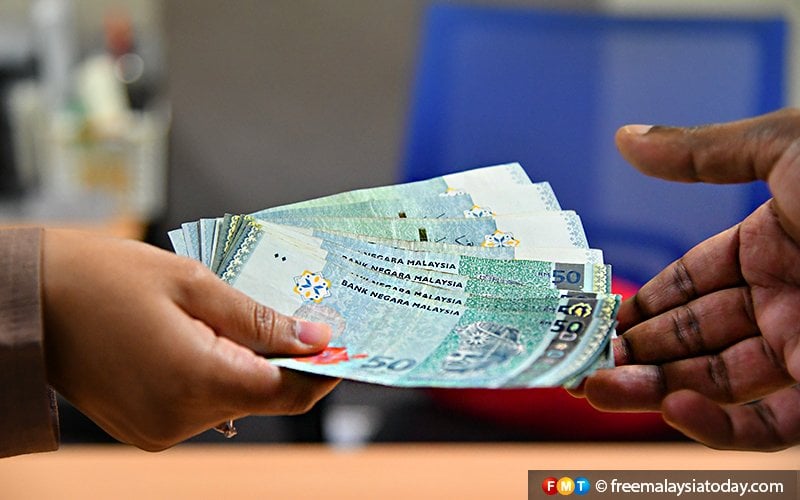 High gearing can be disastrous, especially if the economy does not grow as projected, says economist.
High gearing can be disastrous, especially if the economy does not grow as projected, says economist.
15 Feb 2023, 7:45am
PETALING JAYA: Housewife Agnes (not her real name) leads a fairly comfortable life.
Her husband earns just about RM5,200 a month, a stable income that affords them a house and a car.
Unfortunately, a health insurance plan is out of reach.
House and car instalment payments already wipe out more than half of their income, leaving them with just RM1,900 to pay for household essentials and to raise their toddler.
The couple are caught in the middle income trap. Their income puts them in the M40, the 40% of Malaysians who belong in the middle income group.
They are hardly rich, yet they earn just a little too much to qualify for aid directed to the B40 (the bottom 40% of income earners).
Agnes hopes the government will take their plight into account in Budget 2023 given that it is increasingly challenging to cope with the rising cost of living on wages that have not been raised for some time.
Agnes and her husband are among nearly three million Malaysian households that are especially vulnerable to the household debt trap, according to economist Carmelo Ferlito, CEO of the Center for Market Education.
Many have had to borrow to meet additional expenses resulting from rising costs and the occasional emergencies.
Malaysia’s household debt now stands at 84.5% of gross domestic product (GDP), according to the latest estimates by Bank Negara Malaysia (BNM).
“With the world bracing for an economic slowdown, there is little left for savings. This is worrying,” Ferlito told FMT Business.
“It makes families very vulnerable to economic turbulence, like the loss of employment.”
Holistic measures needed
Ferlito explained that in Malaysia’s case, household debt cannot be seen in isolation from private debt, which includes the debts incurred by companies.
“In Malaysia, almost 98% of businesses are small and medium enterprises (SMEs), and of these 78% are micro SMEs. Many, if not most SMEs, rely on loans to run their businesses,” he said.
“What’s scary is that Malaysia’s private debt (corporate and household debt combined ) as of 2022, stood at 116.07% of its nominal GDP, behind only China (185.92%) but higher than other developing countries such as Indonesia, Thailand, the Philippines, Vietnam, Turkey and India.”
He said if left unchecked, this high private debt could be disastrous, especially if the economy does not grow as projected and businesses cannot earn enough to cover their debt.
“Many businesses are still recovering from the Covid-19 lockdown, while the stimulus packages have led to inflation.
“If the economy slows down as expected, many businesses will have to bite the bullet and cut losses as well as slash jobs,” he said.
He reiterated that global factors such as the Ukraine war, China’s economy and the volatility of the US dollar would have an impact on the Malaysian economy.
On the other hand, Ferlito said, the government could stack the odds in its favour by introducing pro-business policies under Budget 2023, which will be tabled on Feb 24.
These could include cutting taxes, reducing red tape and making it easier to do business, he said.
Barjoyai Bardai of Universiti Tun Abdul Razak said the government could revamp social protection in the budget by establishing an endowment fund.
The money can come from the revenues of Petronas, Khazanah Nasional Bhd and other government-linked companies, he told FMT Business.
Barjoyai said this could enable the government to distribute cash to those who are struggling or to supplement education and health expenses for the people.
“This can help lower private debt,” he said.
He said people are taking out loans because the cost of living has risen “so high”.
“Our private debt right now is so high, it’s almost equivalent to Malaysia’s GDP,” he added.
